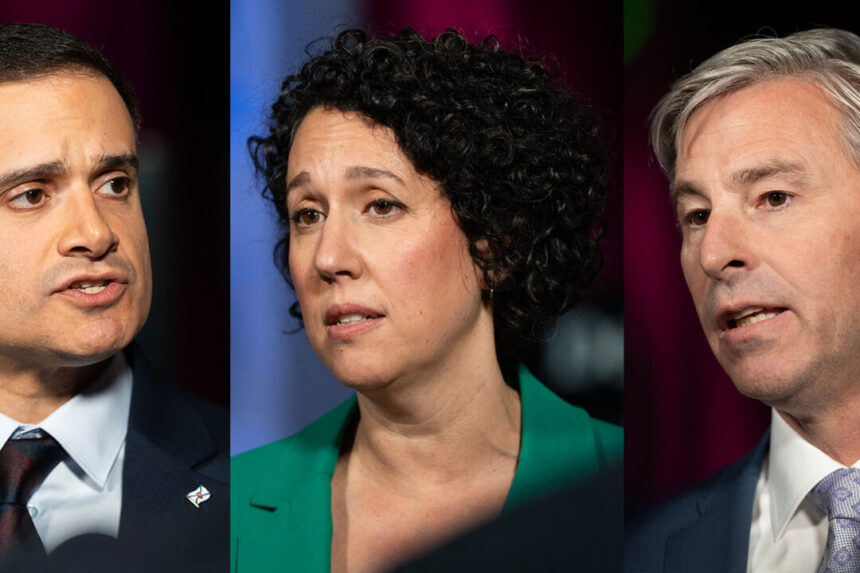Today, Nova Scotia residents will head to the polls to cast their votes, marking the end of a month-long campaign that was initiated by a snap election call from Premier Tim Houston.
Houston’s decision to call the election on Oct. 27, well before the fixed date of July 15, 2025, came at a time when his Progressive Conservative (PC) party was leading in the polls—a lead that has remained consistent over the past four weeks.
According to the latest poll results released on Nov. 24, Houston’s PCs have secured 48 percent of the vote share, followed by Claudia Chender’s NDP at 28 percent and Zach Churchill’s Liberal Party at 22 percent.
Abacus Data predicts that Houston is on track for a landslide victory, with the potential to not only secure a majority government but also potentially achieve a supermajority by holding at least two-thirds of the 55 seats in the House of Assembly.
Despite the popularity of NDP leader Claudia Chender, Houston’s advantage lies in his strong leadership and recognition among voters, according to Abacus Data CEO David Coletto.
In terms of party platforms, Houston has pledged to reduce the HST by one percentage point and increase minimum wage, while Churchill’s Liberals aim to lower the HST further and provide subsidies for grocers. Chender’s NDP promises rent control and tax credits for low-income renters.
All three parties have put forward a comprehensive list of candidates, with 55 representatives from each party contesting the election.
Advance polling concluded on Nov. 25 with a total of 160,698 ballots cast, as reported by Elections Nova Scotia.
The Canadian Press contributed to this report.
Please rewrite this sentence.
Source link





